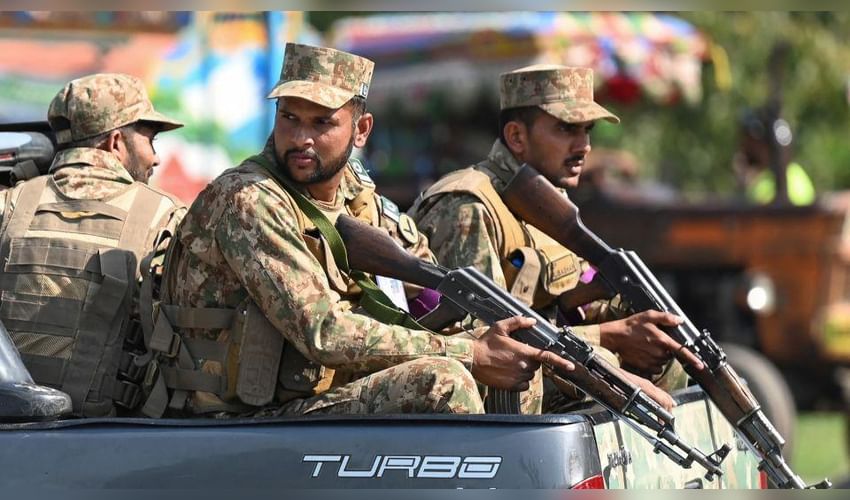World
38 Terrorists Killed in Four Separate Operations in Pakistan's Khyber Pakhtunkhwa

In a series of intense counterterrorism operations, Pakistan’s security forces killed 38 terrorists across four separate engagements in Khyber Pakhtunkhwa, signalling a sharp escalation in armed confrontations amidst a worsening internal security situation. According to the military’s media wing, the operations were conducted in different districts of KP, including Dera Ismail Khan, Tank, North Waziristan, and South Waziristan. These areas have witnessed a resurgence of militant activity over the past two years, with attacks targeting both civilians and security personnel.
The largest encounter reportedly took place in the Dera Ismail Khan region, where security forces engaged heavily armed militants belonging to banned outfits operating from mountainous terrain near the Afghan border. Several weapons, improvised explosive devices (IEDs), and communication equipment were recovered, pointing to a well-coordinated terror network. Officials stated that all four operations were intelligence-based and conducted to dismantle terrorist hideouts responsible for recent attacks on security convoys, polio teams, and government installations. The military also revealed that several terrorists killed had been linked to high-profile attacks in KP and Balochistan.
Despite the successful operations, concerns are rising over Pakistan’s deteriorating internal security landscape. Analysts note that militant groups have re-established logistical routes and recruitment channels after the Taliban takeover in Afghanistan, exploiting porous borders and governance gaps.
The sudden spike in counterterror operations also highlights Islamabad’s struggle to regain control over territories where extremist groups appear to be regaining influence. Local residents report growing fear as gun battles and search operations have become more frequent, particularly in southern KP districts.
The government maintains that it is committed to eliminating terrorism “at all costs,” but critics argue that inconsistent policy, political instability, and a lack of long-term strategy have allowed militant networks to rebuild.
With winter approaching traditionally a period when militants retreat into hideouts — security forces are expected to intensify their operations. However, experts warn that unless Pakistan adopts a comprehensive counter-extremism approach addressing political, economic, and border-security challenges, the cycle of violence is unlikely to end.



